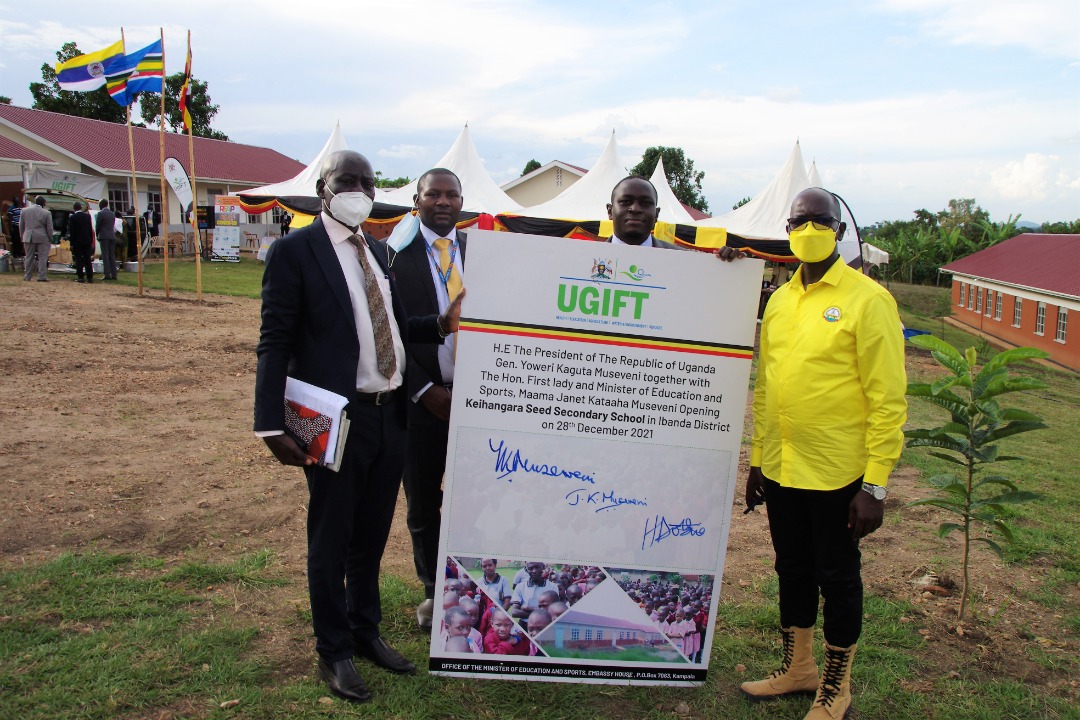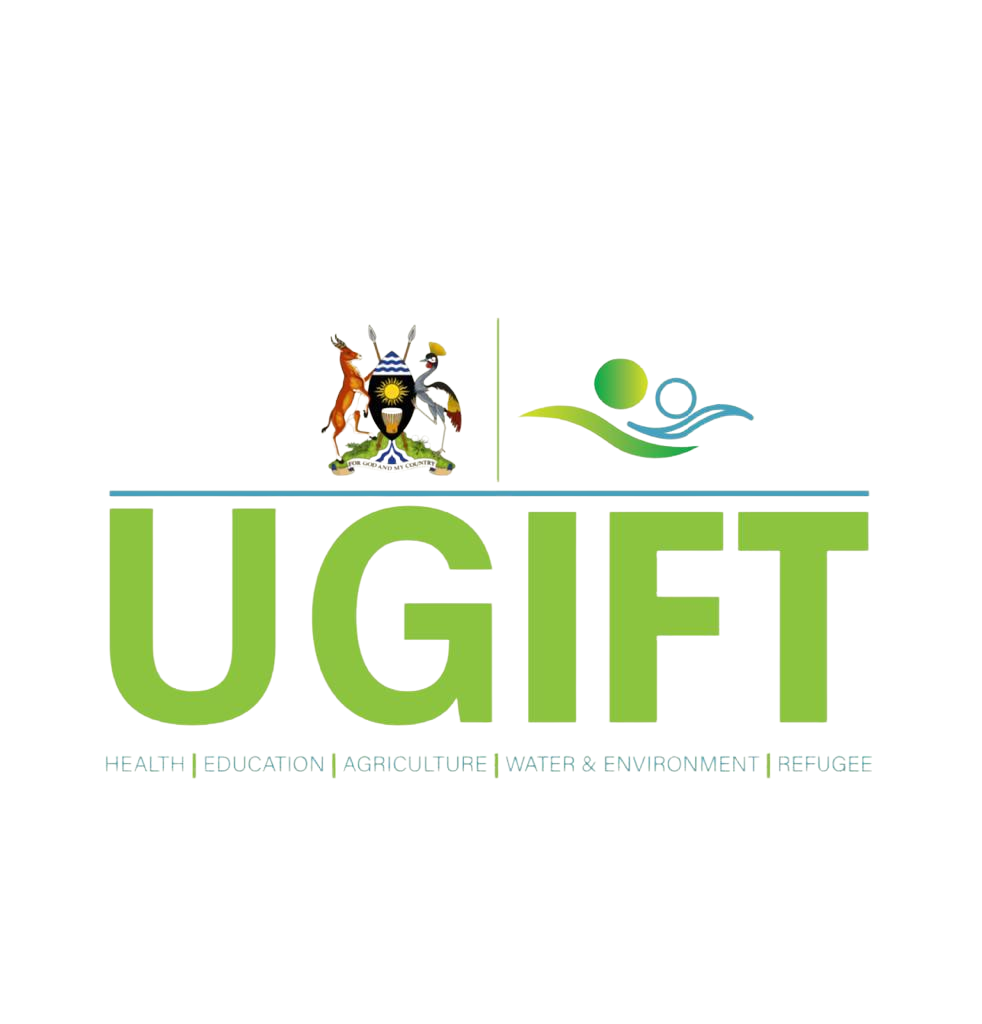Institutional and Implementation Arrangements for the Inter-Governmental Fiscal Transfer Reform Programme

The Inter-Government Fiscal Transfer Reform Programme will be implemented through and by GoU existing structures and no parallel implementation and oversight structures will be created. The figure below outlines the oversight structures as well as implementation arrangements specifying the lead department for each of the core functions of the reform.
IGFTR Oversight Structures
The oversight structures will be: (i) IGFTR Oversight Committee (ii) the IGFTR Steering Committee; and (iii) the Fiscal Decentralization Technical Committee.
i.) The IGFTR Oversight Committee will be chaired by the Minister of Finance, Planning and Economic Development. The members will be Ministers of: Education and Sports; Health; Water and Environment; Agriculture, Animal Industries and Fisheries, Local Government, General Duties (OPM), Public Service, Works and Transport, Lands, Housing and Urban Development, Gender, Labour and Social Development, and Chairperson Local Government Finance Commission. Other Ministers will be co-opted depending on the issue being discussed. Development Partners supporting IGFTRs will be ex-officials. The Permanent Secretary/Secretary to the Treasury will be the Secretary. The IGFTR Oversight Committee will be responsible for providing policy guidance to the design and implementation of all aspects of Intergovernmental Fiscal Transfer Reforms.
ii.) The IGFTR Steering Committee will be chaired by the Permanent Secretary/Secretary to the Treasury. The members will be Permanent Secretaries of MoH, MoES, MoWE, MAAIF, OPM, MoLG, MoPS, MoLHUD, MoWT, MoGLSD, Executive Directors of PPDA and NEMA and Secretary LGFC. Other Permanent Secretaries will be co-opted depending on the issue being discussed. Development Partners supporting IGFTRs will be ex- officials.
The Director Budget, MoFPED will be the Secretary. The FD Steering Committee will be responsible for providing strategic direction to the design and implementation of all aspects of the Intergovernmental Fiscal Transfer Reforms including but not limited to:
(i) final approval of the LG Performance Assessment Manual and Annual LG Performance Assessment Results;
(ii) final approval of the grant allocation formulae;
(iii) providing oversight and ensure the achievement of results envisioned in the reform program; and
(iv) any other function that requires strategic guidance related to the implementation of the IGFTRs.
iii.) The IGFTR Technical Committee: The TC will be chaired by the Director Budget, MoFPED, and co-chaired by:
(i) Director Research and Revenue, LGFC; and
(ii) Director, M&E, OPM10. It will be composed of representatives with members who handle transfers at a senior (Commissioner) level from MoFPED (BPED, ISSD); MoLG; LGFC; OPM, MoWE, MAAIF, MoLHUD, MoWT, MoGLSD, PPDA, and NEMA. Representatives from LGs (UAAU, ULGA, etc.) DPs supporting IGFTRS and BTI Partners will be ex-officials.
The Secretary will be Commissioner BPED, MoFPED.
The IGFTR TC is responsible for overseeing and coordinating, at a technical level, the grants, assessment, and targeted technical support including but not limited to:
(i) the implementation of the grant allocation formulae to ensure equitable allocation of funds across LGs;
(ii) the releases to LGs, ensuring timeliness;
(iii) technical review and verification of the LG performance assessment manuals as well as results and ensure applications of the results during the allocation of grants;
(iv) handle grievances related to LG transfers and results of the LG performance assessment;
(v) offer technical guidance on the provision of targeted support to the weak LGs to ensure that the identified gaps are addressed;
(vi) coordinate joint monitoring of the implementation of reforms at the LG level; (vii) offer technical guidance on the design and implementation of the budget transparency initiative;
(vii) compile, monitor, and troubleshoot the achievement of all results envisioned in the reform program; and
(viii) coordinate joint annual reporting and review of the Intergovernmental Fiscal Transfer Reforms.
IGFTR Implementation Structures
The implementation arrangements will also involve the mandated departments coordinating with the relevant stakeholders to ensure that the core functions regarding the reforms are implemented:
i.) The LG Grant Management function will be coordinated by the Fiscal Decentralization Section, Budget Policy and Evaluation Department, MoFPED. The Commissioner, Budget Policy and Evaluation Department will ensure the participation of:
(i) Officers in the Fiscal Decentralization Section;
(ii) the respective Sectoral Desk Officers; and
(iii) Officers from the Accountant General’s Office are responsible for making releases to LGs. The function will involve coordinating the reform as well as the LG budget formulation and execution functions. The specific tasks include: (i) coordinating consultations with LGs to inform the development of the respective grant guidelines – through the LG Budget Workshops; (ii) coordinating the application of the grants allocation formulae
- Co-chairing will depend on the issue being discussed: (i) when discussing the size and allocation of grants, the co-chair will be the Director Research and Revenue, LGFC; and (ii) when discussing the LG performance assessment, the co-chair will be the Director, M&E OPM.
approved by the sector and generating IPFs; (iii) coordinating the release of transfers to LGs;
(iv) coordinating LG budget reporting; (v) coordinating the implementation of quarterly joint monitoring visits to LGs covering safeguards, contract management and procurement; and
(vi) ensuring achievement and reporting on the results envisioned in the Reform Program relating to the adequacy and equity of LG transfers.
ii.) The Budget Transparency function will be coordinated by the Budget Evaluation Section, Budget Policy and Evaluation Department, MoFPED. The Commissioner, Budget Policy and Evaluation Department will ensure the participation of Officers in the Budget Evaluation Section; Officers from FDS, the respective Sectoral Desk Officers and BMAU. The function will involve publicizing budget information. The specific tasks include
(i) overseeing the development, management and popularizing of the tools that are used to publicize budget information e.g. the budget website and call centre;
(ii) ensuring that budget information that is comprehensive and accurate is provided on time e.g. to the budget website, newspapers, others;
(iii) coordinating the process of receiving feedback on the publicized budget information and service delivery in general; and
(iv) coordinating the process of responding to feedback.
iii.) The function of providing advice on improving LG financing will be coordinated by the Directorate of Research and Revenue, LGFC.
The Director, Research and Revenue, LGFC will ensure the participation of: Officers in the Directorate of Research and Revenue, LGFC; Officers from MoLG, MoFPED and sectors making transfers to LGs. Performing the function will involve:
(i) coordinating the annual negotiations between Ministries, Departments and Agencies on one hand and LGs on the other regarding transfers to LGs (size, formulas, modalities, systems and procedures etc.);
(ii) conducting studies and providing advice on LG finance, especially on how to improve grants, own source revenues and other sources of LG financing; and
(iii) verifying the achievement and report to the technical committee on the results envisioned in the Reform Program relating to the adequacy and equity of LG transfers.
iv.) Performance Assessment function will be coordinated by the M&E Department, OPM. The Commissioner M&E, Office of Prime Minister will ensure the participation of representatives from OPM, MoLG, LGFC, MoFPED, MAAIF, MoPS, MoES, MoH, MoWE, ULGA and UAAU. Representatives from other MDAs will also be co-opted depending on the subject discussed. Performing the function will involve coordinating the design and implementation of the performance assessment system for MDAs, Local Governments and Service Delivery Units. The key tasks include: (i) coordinating the formulation (and refinement) of the Performance Assessment Manuals; (ii) procuring and managing the firms contracted to conduct the LG performance assessment exercises and the quality assurance team; (iii) coordinating the orientation and training of LGs and teams contracted to conduct the LG performance assessment exercises;
(iv) validating the results of the LG PA and presenting to the Technical Committee with a clear recommendation on the impact of the results to the allocation of grants, the poorly performing LGs that require support, and common thematic areas of underperformance requiring support; (v) coordinating the dissemination and use of the LG performance assessment results including presentation to GAPR; and (vi) ensuring achievement and reporting on the results relating to LG assessment and performance as envisioned in the Reform Program.
v.) LG Performance Improvement function will be coordinated by the District Administration Department, MoLG. The Commissioner, District Administration, MoLG will ensure the participation of representatives from MoLG (Urban Administration, District Inspection; Urban Inspection and Local Council Development); Office of the Prime Minister; LG Finance Commission; ministries of Finance, Planning and Economic Development;
Public Service; Education and Sports; Health; Agriculture, Animal Industries and Fisheries; Water and Environment; Lands, Housing and Urban Development as well as ULGA and UAAU. Representatives from other MDAs will be co- opted depending on the subject being discussed.
The function will involve coordinating and managing the multi-sectoral National Resource Pool supporting the preparation of Performance Improvement Plans, dissemination of guidelines and other core activities to LGs.
This will involve:
(i) developing the framework, principles and modalities for providing targeted performance improvement support to LGs;
(ii) determining the most appropriate institutions to provide the support and method of support (based on the recommendations of the LG PA results);
(iii) coordinating the development of training materials tailored to addressing the identified gaps;
(iv) coordinating the provision of technical advice, supervision and training by the respective sectors according to their mandates;
(v) maintaining an up-to-date inventory, co-ordinate and ensure harmonisation of government and externally-funded capacity building initiatives directed towards LGs; and
(vi) ensuring achievement and reporting on the results (relating to planning and effectiveness of targeted technical support as envisioned in the reform program.
vi.) Joint Monitoring Function: Monitoring the construction and maintenance of facilities function will be coordinated by the Fiscal Decentralization Section, Budget Policy and Evaluation Department, MoFPED. The Commissioner, Budget Policy and Evaluation Department will: (i) ensure that the respective sector ministries conduct monthly routine monitoring of construction and maintenance of facilities; (ii) coordinate the joint quarterly monitoring of construction and maintenance of facilities; (iii) ensure that Ministry of Works and Transport organizes spot checks on key issues identified from the routine and joint monitoring exercises; and (iv) Office of the Auditor General conducts annual technical infrastructure audits as well as VFM service delivery audits every second year starting in FY 2020/21.
vii.) Sector grant management function will be coordinated by the Policy and Planning department of the respective MDA making transfers to LGs. The Commissioner Policy and Planning of the respective MDA will ensure the participation of Officers from Policy and Planning; the relevant departments in the MDA (e.g. Officers from Primary Education; Secondary Education; Directorate of Education Standards; and BTVET in the Education sector); as well as sector Desk Officers from MoFPED, MoPS and MoLG. The tasks will include: (i) developing sector policies and strategies that govern local service delivery;
(ii) developing and issuing grant guidelines including associated formulae, budget requirements and medium-term grant allocations within sector ceilings; (iii) provision of data for formulae variables not available from UBOS (e.g. enrolment); (iv) follow up on assessment of the LG draft BFP Papers and draft budgets compliance with the budgeting requirements; (v) verification/accreditation of cost centre data submitted by LGs and used in the IFMS/PBS; (vi) participate in LG Performance Improvement exercises and support to the LG Performance Assessment System, and (vii) develop/ refine LG performance assessment parameters in the sector.

